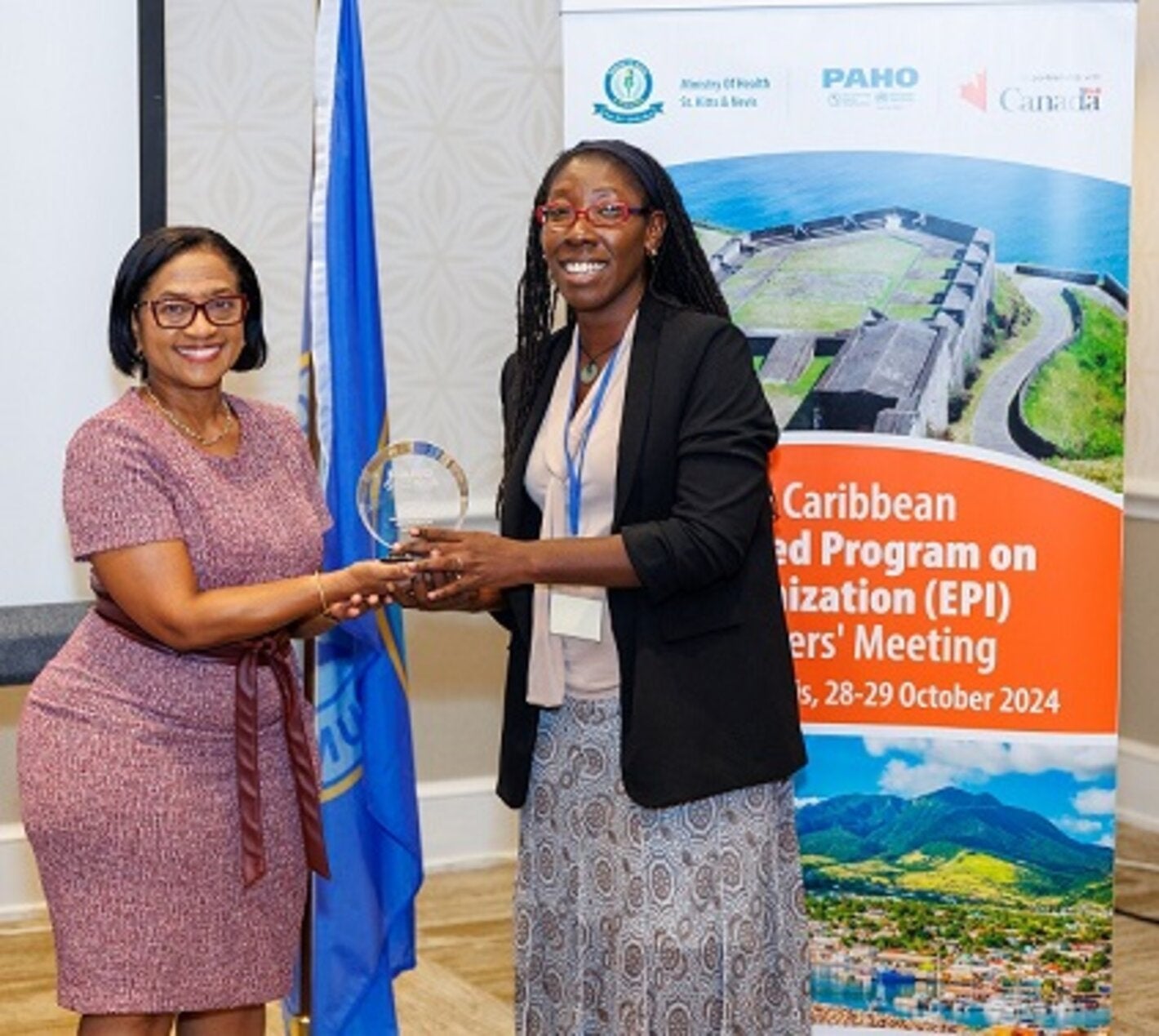
Basseterre, St Kitts and Nevis, 6 November 2024 (PAHO/WHO) – During the 38th Caribbean Expanded Program on Immunization (EPI) Managers' meeting held in St Kitts and Nevis from October 28-30, Jamaica won the Henry C Smith award for most improved immunization coverage in 2023, while the inaugural Beryl Irons award went to Grenada for achieving its surveillance targets in 2024 and improving immunization coverage in 2023.
Three countries also took away surveillance awards. In first place was Barbados, second place went to St Kitts and Nevis and third place, Belize. The winning EPI managers expressed their great sense of achievement on receiving these country awards.
EPI Manager, Dr Julia Rowe-Porter jubilantly reported that Jamaica is truly honoured to receive the Henry C Smith Award for 2023. “This award is evidence that our immunization team at all levels - facility, parish, regional and national - are committed, resilient and focused on achieving our target for 95% vaccination coverage, with a phenomenal post-pandemic recovery. There is still much work to be done to combat the growing threat of vaccine hesitancy. We are grateful for the ongoing technical cooperation and support received from all our partners, especially the Pan American Health Organization, as Jamaica seeks to maintain the gains of this high priority programme,” she shared.
These sentiments of teamwork were echoed by Hannah St Paul, EPI Manager in Grenada who asserted: "This achievement was only possible through the hard work and commitment of the EPI team in Grenada, with the support of the Minister and policy team in the Ministry of Health.”
The meeting ran from October 28-30, under the theme, “Stronger Together: Advancing Immunisation, Eliminating Disease”, and culminated with a communications workshop. Pan American Health Organization Advisor, Immunization, Dr Karen Broome, noted that while the post-pandemic road has been difficult, significant strides have been made. “The investments we’ve made in risk communication and community engagement are starting to pay off. We're connecting better with the public, especially the most vulnerable, and building the trust we need to carry this work forward. Because, as we all know, without the trust of the community, we cannot do our work effectively. Rebuilding that trust is a process, and it's one we must approach with patience and effective communication,” she stressed.
During the opening ceremony, PAHO’s Assistant Director, Dr Rhonda Sealy, commended the Caribbean Immunization managers for beginning to turn vaccination coverage around. “Notably, Polio 3 coverage improved from 90% in 2021 to 93% in 2022, with even more progress in 2023, where we nearly reached the global target of 95%, achieving 94%. The gains in MMR vaccinations are also encouraging… These achievements reflect the hard work of our National Expanded Program on Immunization and the unwavering support of our health ministers,” Dr Sealy expressed in a video message.
At the end of the meeting, Professor Peter Figueroa, Chair of the Caribbean Technical Advisory Group on Immunization (CiTAG), endorsed the call to eliminate cervical cancer and noted that this will require increasing HPV vaccine coverage, as well as testing. He commended the EPI managers for their dedication and commitment and shared various recommendations. These included the need to prioritize digital health to improve efficiency and ease the workload of healthcare workers, the drafting of model legislation to support the program, the development of an infrastructure for adult and adolescent immunisation and the costing of EPI programs to identify the real costs and advocate for increased resources.




